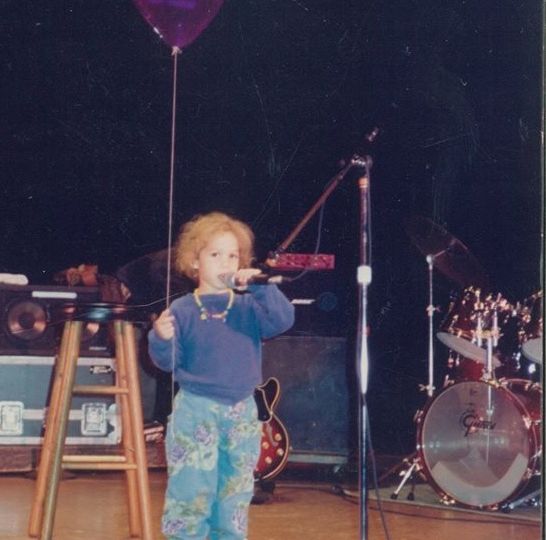
The other day my kids get very excited about going down to the studio and taking “lessons” from me on their instruments of choice. Cienna picked piano and Sekani picked ukulele. I had tried this with them before but it was never very productive because it was my idea and they didn’t want to listen to any of my suggestions (“no, mom, thats not middle C… THIS one is middle C”). Actually, yes honey, that one is middle C…
But this time it was different! We took turns – Cienna did a 20 minute lesson while Sekani played on the computer and then we switched. They actually listened to me give directions and they followed along. It was like working with two completely different kids. They were showing me that they were ready for more structure if I was ready to provide it.
So how do you know it’s time to start private music lessons? The answer to that question will be different for every child. I don’t think it’s about age so much as it’s about readiness. Here is a list of things to be aware of that will help you to determine the answer:
1. They are showing interest
The reason our music lessons are starting to work is that they have expressed interest in a specific instrument. Now, this interest might change and evolve, it usually does in the beginning. So don’t be surprised if your child decides after a year (or even a few months) that they don’t want to play piano anymore but they want to try guitar instead, or even cello or harp. This is a sign that they are interested in playing music, so go for it! When we’re interested in something we have a desire to engage with it. The more we engage with something that we like, the better we get at it. Your child is more likely to practice their instrument if they are interested in learning it. If they feel like it was your idea and you’re pushing it on them then they may lose interest, and that’s a reality that is harder to reverse. Here are a few ideas for making their practice time go smoothly: 5 Ways to Support a Young Musician Who Doesn’t Want to Practice.
2. They have a longer attention span
To really learn something you have to be able to concentrate on it for an extended period of time. You need to be able to get yourself into a place of focus and intent, and stay there so your brain can start making the connections it needs. If your child can’t sit still, has trouble focusing for longer than 15 minutes at a time, and/or does not easily follow directions, then I would recommend that you to hold off on formal private music lessons for a little while. In this case, your child would probably get more out of a group exploratory music class with others kids his or her age.
3. You are ready to commit as a parent
There are so many factors that go into how quickly someone can learn something new, especially when that something involves an integration of so many parts of themselves. During music study, they are integrating fine motor skills, language learning, rhythmic movements, breath control, and a number of other skills that vary depending on the instrument. It can take a while before you see all of these parts working together, which means it might be a while before the music your child plays sounds “musical”. It has to go through the squeaky, choppy stage before it gets to smooth and controlled. As a parent you have to be ready for a year-long commitment at least. You are committed to paying for monthly lessons, and your child is committed to practicing a certain number of days per week for a certain amount of time (work out a practice schedule with the help of your music teacher).
4. They have time in their schedule
Kids are so over committed these days. Every week I have students come rushing in and rushing out, forgetting their guitar because they came from basketball. Forgetting their music because it’s still sitting at the piano. Forgetting to practice because they just didn’t have time. I don’t mind working with them in this state, but I find that it takes much longer for them to get focused and we tend to repeat the same lessons week to week because they don’t spend time at home. Don’t add music lessons to your child’s weekly schedule just because it’s “good for them”. A lesson may be 30 minutes, but most of the learning comes at home through regular practice time. If you don’t have time for this, it’s not time for private lessons yet.
5. You notice that they love music already
Some kids just love it. If you notice that your child is always singing in the shower or singing along to the radio, then they may love taking voice lessons. If they are constantly drumming on tables or beatboxing with their mouths, suggest drum lessons. Not all kids display a love for music before they start lessons, but for those who are undeniably engaging in music on their own terms already music lessons are a no-brainer. Encourage their interests, no matter what they are.

